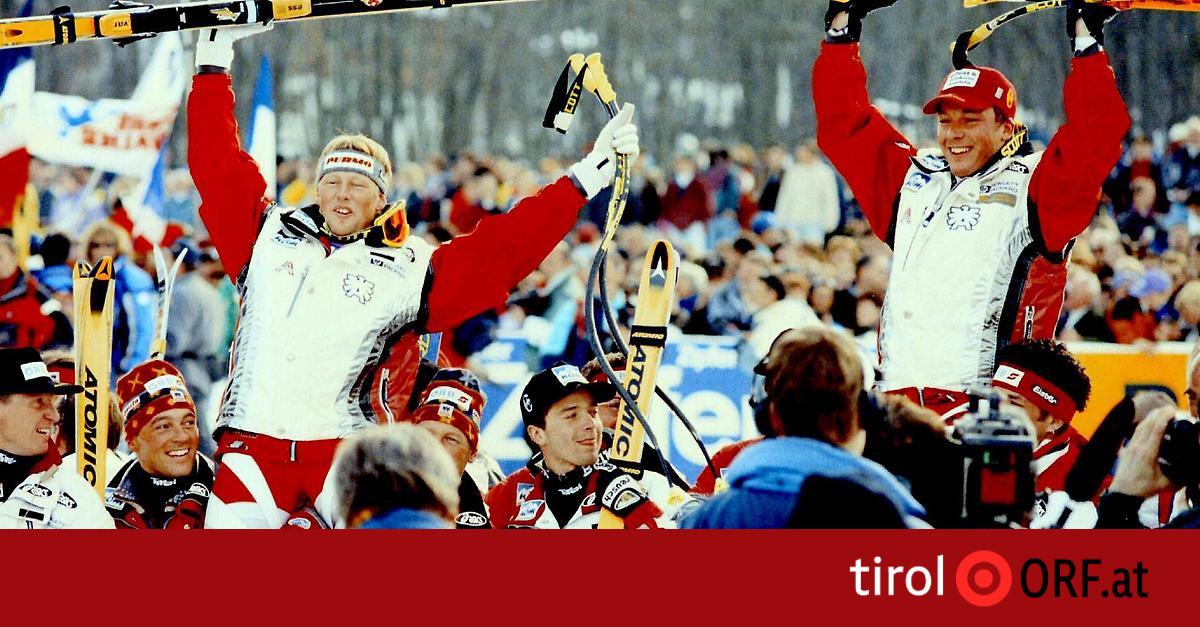The Hahnenkamm races in Kitzbühel have long been considered legendary among winter sports fans. Downhill and slalom have been exciting for decades. For a long time there was also a classic combination, which is now also run as a separate race. Additional races were added more and more.
Early success and first records
The great popularity of the races also led to particularly great performances by ski racers. In 1937, the classic Streif and Ganslern routes were used for the first time. The winner of the premiere run was the Kitzbühel Thaddäus Schwabl, who won the run with a time of 3: 53.1 minutes. Even then, the race attracted thousands of winter sports enthusiasts.
Then in 1951 the reign of the “Kitzbühel Wonder Team” began. Christian Pravda won the downhill with a record time of 2: 57.0 minutes. He was the first to complete the route in less than three minutes. Pravda was one of six local heroes alongside Anderl Molterer, Toni Sailer, Ernst Hinterseer, Hias Leitner and Fritz Huber.
In the 1950s, they were the stars of the Hahnenkamm races. In 1959 Anderl Molterer finally won the slalom and thus the combination for the last time. As the “White Bolt of Kitz”, he set a record with nine individual victories, which is still considered unmatched today. The race was also televised for the first time by ORF.
The first and last winner on the Hahnenkamm
In 1961, Traudl Hecher was the last woman to succeed on the Streif. In downhill, in slalom and thus in the combination, the Tyrolean became the winner on the Hahnenkamm. Her children, Elisabeth and Stephan Görgl, were later to become known in competitive sports. Both became racing drivers. Even this record of the Hahnenkamm race could not be topped over half a century later. These were the first Kitz races in the World Cup.
1974 saw great success on skis for Hansi Hinterseer. He was the first Austrian in the World Cup era to win the slalom. He also ensured the last home win for a Kitzbüheler at the Hahnenkamm races. His father Ernst Hinterseer, who also had the first run on the Hahnenkamm, was also his trainer. However, the two later split up.
The time of the bracket hype
In 1975 Franz Klammer achieved his fifth downhill victory in a row in the World Cup. At the age of 21, the Carinthian became the youngest Streif winner in the history of the Hahnenkamm races. He also set a new course record with a time of 2: 03.22 minutes. Klammer was only a hundredth of a second faster than the South Tyrolean Gustav Thöni.
A year later, in 1976, Klammer came up with a second victory. But this time he won with a record lead. His lead over the next placed Erik Haaker was 2.06 seconds. To this day, this is still unmatched in Kitzbühel.
Course record by Fritz Strobl
In 1990 Rudi Nierlich achieved the first ÖSV victory in the Kitz Slalom since Klaus Heidegger in 1978. Tragically, he died only 16 months after his great success in a car accident.
In 1997 Fritz Strobl set the course record that is still valid today. The Carinthian mastered the route within 1: 51.58 minutes and became the winner. “It was the fastest patrol ever,” he said years later.

With Mario Matt and Hermann Maier into the 21st century
In 2000 the Hahnenkamm had a new star: Mario Matt. When he started out on the slopes with starting number 47, he ended up at the Golden Gams. Never before had such a high number achieved such a victory.

The “Herminator” followed in 2001: Hermann Maier had won almost all the big downhill runs by then, the Hahnenkamm race was still the last one open. He undid that just after the turn of the millennium. At that time, the ÖSV and its team achieved their best result: seven Austrians made it into the top ten.
A serious motorcycle accident in the summer of 2001 temporarily put Hermann Maier’s career on hold. Slowly he had to work his way up again – and ultimately won the Super-G.
Stephan Eberharter achieved his second Hahnenkamm victory with a journey from a single source. A full 1.21 seconds separated the Zillertal from the second-placed American Daron Rahlves. To this day, experts and racers believe that Eberharter found the perfect line on the Streif back then.

The oldest downhill winner and Marcel Hirschers explosion
In 2012, Didier Cuche should achieve his fifth victory on the Streif. He had announced his resignation two days earlier. The Swiss had already been successful in 1998, 2008, 2010 and 2011. At 37, he became the oldest racing driver to ever win a downhill.
The last downhill victory of an Austrian in Kitzbühel went to Hannes Reichelt in 2014, even though he suffered from severe back pain. A herniated disc was diagnosed after his triumphal procession. Reichelt had to stay away from the Olympic Games in Sochi.

Marcel Hirscher achieved his second and last victory in Kitzbühel in 2017. The overall World Cup record winner catapulted himself to the front thanks to an explosion in the second run and won 0.76 seconds ahead of Dave Ryding. After race one, Hirscher was still ninth with 1.02 seconds behind the British.
–


